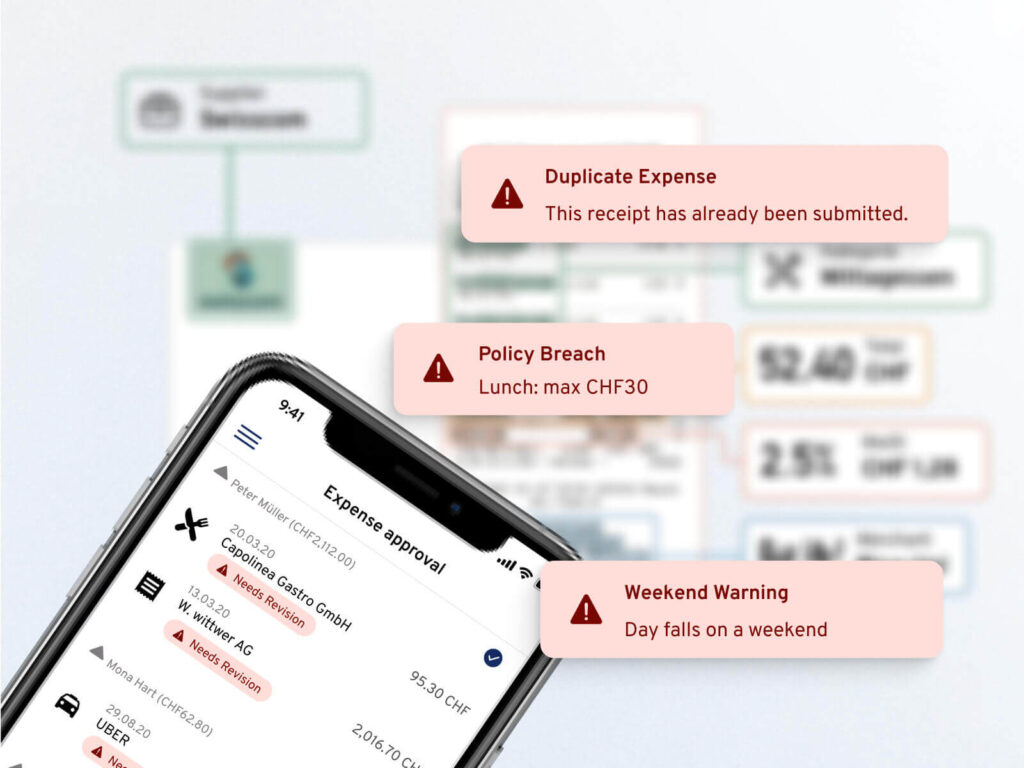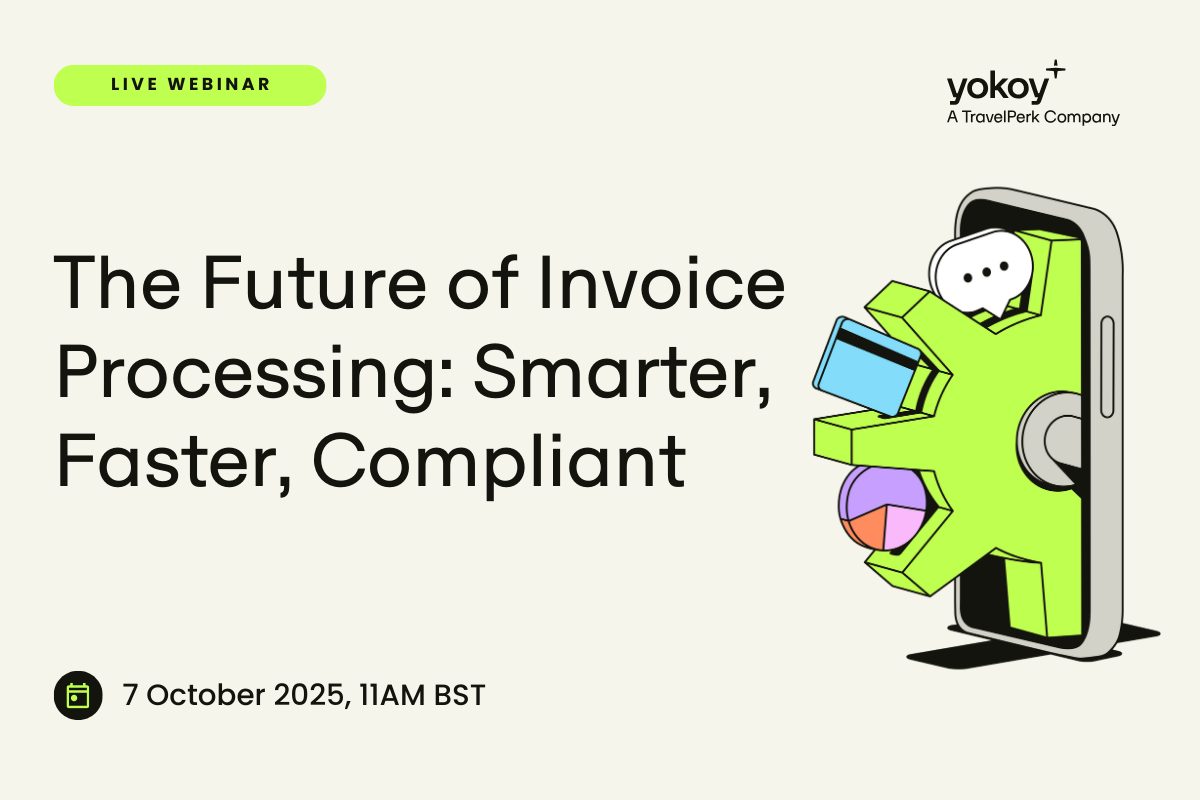Home / Automation: The Basis For Enforcing An Expense Regulation
Automation: The Basis For Enforcing An Expense Regulation
- Last updated:
- Blog

Co-founder, Yokoy
Under normal circumstances, expenses may not seem so spectacular. However, when something doesn’t seem to be going right, expenses are brought immediately into the spotlight.
Especially when it comes to a large volume of receipts, which makes it difficult for companies to check every expense in detail, mistakes may occur. How can automation help companies better identify anomalies?
A top Swiss banker squanders hundreds and thousands of Swiss francs on strip clubs, bars and nightclubs, then charges these expenses to his employer along with private holiday trips and overnight stays in luxury hotels.
This is what the highly publicized Raiffeisen trial in January 2022 was about, in which expense reports were already the subject of much discussion on the first day of the trial. Hardly any newspaper missed this topic: The business trip with the helicopter, the late-night job interview with a female acquaintance arranged through Tinder, the hotel room smashed up after an argument with a strip dancer.
Expense claims have rarely been examined as thoroughly as in the case of Pierin Vinzenz, the main defendant in the Raiffeisen trial.
For readers of the tabloid press, the case is clear: If a banker makes expenses that amount to several times an average annual salary, and if this expense report lists things that the average person only knows about from hearsay, such as first-class flights and nightclubs, then things are not right and this banker is guilty.
Legal experts take a more differentiated view: It would be difficult to prove that the top banker deliberately and systematically harmed his employer. The banker admits to individual errors, but denies fraud or abuse. His excursions into the red-light district, for example, were necessary to maintain business contacts.
From manual to digital processes
The Raiffeisen trial shows that expenses are not a matter of negligible small amounts. Furthermore, it also illustrates that from a minor inaccuracy to systematic fraud, there are numerous ways a company can lose money when processing expense claims. Nevertheless, shouldn’t such inconsistencies be noticed in the audit process? Not necessarily. Thomas Inhelder, Co-Founder and CFO of Yokoy, explains: “The sheer volume of receipts makes it difficult for companies to check every expense in detail – especially if the claims are processed by hand.”
Yet many companies continue to shy away from going digital with their expense claims. There are still IT managers who believe that expenses are tied to receipts and payslips, and that these little pieces of paper can only be processed by hand. However, without digitalisation, an efficient and secure spend management solution that can protect against fraud attempts cannot be realized. “The combination of a complete expense regulation and software-supported business processes forms the basis to thoroughly check all expense receipts while having them processed quickly as well,” explains Inhelder.
AI uncovers inconsistencies
Using the possibilities of artificial intelligence (AI), the spend management software developed by Yokoy automates the processing of invoices and expense receipts. The photo of a receipt – taken with a mobile phone – is digitized and analyzed within fractions of a second. The software can then check compliance with certain provisions of an expense regulation.
"Our experience shows that a degree of 80 to 90 percent automation can be achieved in the expense process."
Thomas Inhelder, Co-Founder and CFO of Yokoy
But AI has its limits, the Raiffeisen trial also illustrates this. When after weeks of studying files, experienced business lawyers may still have trouble clearly distinguishing between error and fraud, you cannot expect a clear decision from software either. However, there are already common fraud attempts that are immediately recognised by the Yokoy software: for example, if an employee tries to cash a receipt twice, the software sounds the alarm.
Relief from routine tasks
“Our experience shows that a degree of 80 to 90 percent automation can be achieved in the expense process,” says Inhelder. “For managers, this means a relief from routine tasks. They can then concentrate on cases that really require their judgment.” Few of them are likely to ever find themselves in the position of having to analyze receipts from strip clubs and nightclubs.
Want to know how automation can benefit you? Our Yokoy experts are here to provide you with a non-binding demo.
Simplify your invoice management
Book a demoRelated content
If you enjoyed this article, you might find the resources below useful.


